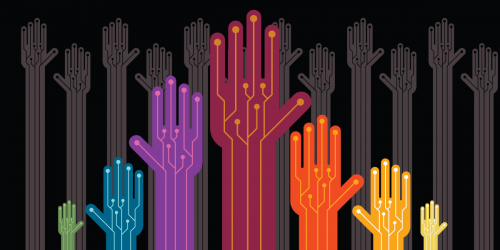China: Twitter-Clone Weibo Introduces a Points System for Punishing Content Violations
Chinese microblogging site Sina Weibo introduced new user conditions on Monday under which users will be deducted “points” for violating its content policy. Users will be suspended from the website once they run out of points. Rules that prohibit advocating protests or “spreading rumors” have always been a part of overall Chinese internet policy, but the points system is an innovation.
The new user contract arrives after the parent company Sina admitted that they had not fully implemented Chinese real-name registration rules by the March deadline. Reporters Without Borders suggests that “It remains to be seen whether or how this points system will be applied to the mass of information circulating on Sina Weibo. It may well be a lost cause but the company could be more interested in looking good in the government’s eyes.” Real-name registration is one of the ways in which Weibo users can recover lost points, which will effectively further reduce anonymous expression in China.
Malaysia: Amended Evidence Act Makes Intermediaries Liable, Shifts Burden of Proof to Defendants
The Malaysian government has recently made a series of troubling amendments to the Evidence Act 1950. Among the changes: an amendment that holds intermediaries liable for seditious content posted anonymously on their networks, services, or websites and an amendment that shifts the burden of proof from the government to the defendant. In Malaysia, not only can you be held liable for someone else’s allegedly seditious comment on your website, or an anonymous comment posted using your open wifi connection, but it is up to you to prove that you didn’t do it.
These amendments may lead to profound chilling effect on free expression and innovation because intermediary content providers like corporations, social networks, and bloggers will be obliged to constantly monitor the activity of third-party contributors. In the United States, Section 230 of the Communications Act protects intermediary “interactive computer services” from certain kinds of liability for third-party content, including defamatory or seditious speech. Centre for Independent Journalism executive officer Masjaliza Hamzah said the Malaysian laws “may force some sites to stop the comment feature because having to vet comments themselves may become untenable, and if this happens, it has a huge impact on the interactive nature of online media favored by readers.”
Bahrain: Activist Nabeel Rajab Released from Jail
Nabeel Rajab, president of Bahrain Centre for Human Rights, was released from jail after he posted bail of 300 dinars ($796). Rajab has been imprisoned since May 5 on charges of “cyber-incitement” of illegal rallies using social networking sites and defaming Bahrain's security forces. With over 146,000 Twitter followers, he is a high-profile critic of the King Hamad al-Khalifa and the Bahraini government. Rajab is banned from travelling abroad as part of the conditions of his release. In the past 15 months, Bahraini security forces have detained and beaten many journalists, protestors, and other critics.
Rajab described his arrest as "a political decision" in court earlier this month. He told the court, “I only practiced my right to free expression… I did not commit a crime.” Meanwhile, Rajab’s many supporters include Bahraini human rights activist Abdulhadi al-Khawaja, who began a hunger strike in February after also being detained for allegedly trying to “depose” the royal family. Upon Rajab’s release from jail, Khajawa voluntarily ended his hunger strike and described the event as successfully drawing attention to the issue of imprisoned Bahraini political dissidents.
Ethiopia: Restricting VOIP, Initiating Deep Packet Inspection
Last Thursday, the Ethiopian parliament ratified a new Telecom Service Infringement Law meant to impede Voice over Internet Protocol (VoIP) calls and faxes. The rules are primarily aimed at protecting the state service provider Ethio-Telcom from competition and “telecom fraud” by granting the Ministry of Communications and Information Technology the right to license companies engaged in producing or distributing any information communication technology. Additionally, a “national security” section in the new law includes anti-terrorism and anti-defamation provisions for content regulation. Prominent Ethiopian blogger Endalk has referenced the latest law as a “creative copy of SOPA and PIPA,” both of which fellow blogger Frank Nyakairu had predicted would lead to “opportunistic” spin-offs in multiple African dictatorships. Already, the Committee to Protect Journalists reports that about 25% of exiled journalists in Africa are from Ethiopia. Not only does the Telecom Service Infringement law block journalists’ access to important communication pathways such as VoIP, but the broad “national security” content regulations will give the government even greater official latitude in shutting down the country’s small but active blogging community.
The new telecom regulations are part of an ongoing pattern of increased Internet surveillance and censorship. Even though Ethiopia has internet penetration of less than 1 percent, its online political censorship regime is one of the most complex in sub-Saharan Africa, aided by Chinese capital and technology. Ethiopian ISPs recently initiated covert deep-packet inspection, and also began blocking Tor.









